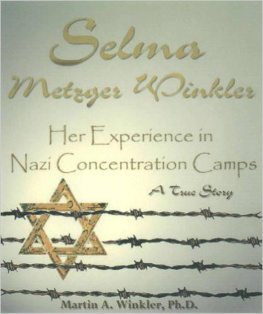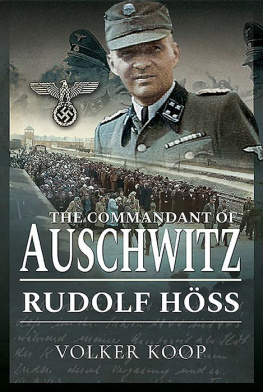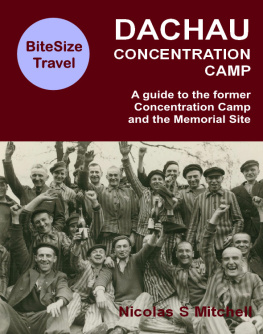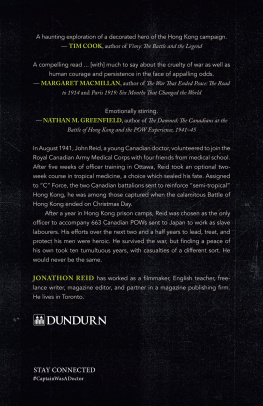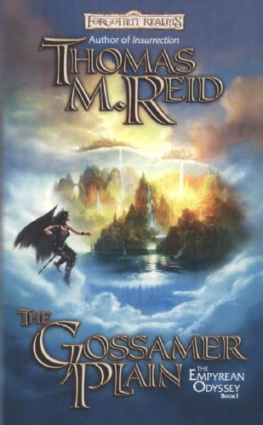PRAISE FOR
My WWII Odyssey: Salerno to the Downfall of Nazi Germany
Dear Mr. Reid,
In sharing your personal testimony as a survivor of the Holocaust, you have granted future generations the opportunity to experience a personal connection with history. Your interview will be carefully preserved as an important part of the most comprehensive library of testimonies ever collected. Far into the future, people will be able to see a face, hear a voice, and observe a life, so that they may listen and learn, and always remember. Thank you for your valuable contribution, your strength, and your generosity of spirit.
Steven Spielberg, Chairman, Shoah Visual History Foundation
A must read! This memoir provides the personification of the heroic men and women of WWII, the horrors of combat and clearly refutes any supposition that the Holocaust never happened. Written by a true American hero!
Lieutenant General Paul E. Blackwell, United States Army (Retired)
My WWII Odyssey:
Salerno to the Downfall of Nazi Germany
by Dr. Alban Reid, Jr. with Stephanie Reid Wilcox
Copyright 2020 Dr. Alban Reid, Jr with Stephanie Reid Wilcox
ISBN 978-1-64663-108-7
All rights reserved. No part of this publication may be reproduced, stored in a retrieval system, or transmitted in any form or by any meanselectronic, mechanical, photocopy, recording, or any otherexcept for brief quotations in printed reviews, without the prior written permission of the author.
REVIEW COPY: This is an advanced printing subject to corrections and revisions.
Published by
210 60th Street
Virginia Beach, VA 23451
8004354811
www.koehlerbooks.com
CHAPTER 1
A TRAIN TO SOMEWHERE
S o, there I was on September 11, 1940, on a train to somewhere. All I knew was that wherever that somewhere was, I would be wherever the U.S. Army sent me for the next three years. I was an eighteen-year old without a high school diploma, because I couldnt pay my tuition bill. The army had accepted me because they needed all the recruits they could find if the National Guard troops who had been called up for a year in 1939 were to actually fulfill OHIO chant Over the Hill in October 1940. But the regular army had been unwilling to accept me until my mother had supplied a birth certificate certifying that I was, in fact, eighteen years old. I had been on short rations for over a year and my body must have shown it (I had been relying on a bottle of chocolate milk and a sweet roll each day) but my semi-monthly paycheck arrived and then I could afford to have a proper meal. It took several days for the birth certificate to arrive. While we waited, I continued to get my rest at night on a park bench outside the downtown railroad station. Imagine trying to do that in Philadelphia today! During the day I tried to ignore the rumbling of my empty stomach. And then the birth certificate arrived and I was inducted, promising to serve my country loyally and faithfully against all enemies, foreign and domestic. Since America didnt have any immediate enemies, as far as I knew, I didnt think I would be called on to engage enemies, foreign or domestic, in the immediate future. To the contrary, I saw military service as a way of getting my life in order, paying off my school debt so that I could receive my diploma, and even saving money with which to buy off the third year of my enlistment so that I could return to Dartmouth and my medical studies which were now on hold.
The train ride proved to be a short one and it ended in Washington, D.C. where I was assigned for duty at the Army Medical Center, which included Walter Reed Army Hospital. Although my induction record listed my previous employment as a clerk at the Philadelphia Public Library, I had stressed during my induction interview that my ultimate goal was to study medicine and become a physician. So, there I was: instead of becoming whatever the army wanted a library clerk to become, I would do whatever the army wanted me to do at the Army Medical Center.
The train ride from Philadelphia to Washington, D.C. was fairly brief. I dont recall the details of my arrival, though some of the other recruits stayed on the train, heading south for a different type of service. In Washington, I was whisked from the train station to the Army Medical Center where I was issued clothing, shoes and bedding. After a brief stop at the mess hall, I was escorted to the barracks where I would spend my nights for the next several months. I was assigned to a private first class who had just received his promotion for enlisting for a second three-year term. (Promotions were slow in the regular army at that time!) I would get to know him as Private First-Class Ogilvie, and he proved to be more a master than mentor for a time.
I dont recall Ogilvies first name because I always addressed him by his rank and last name. He was a southerner, as were many of the soldiers who had enlisted during the Depression years, and he was proud of it. He regarded anyone from north of the Mason-Dixon Line with some disdain, and believed it necessary for recruits from north of the Line to go through an initiation process. He was not present when I first entered the barracks and made my way down double rows of bunk beds to my assigned space. I made up my bunk with the bedding I had been issued and bedded down for the night sometime before lights out was sounded by the bugler.
I enjoyed my first night in a bed in almost a week, and thus ignored the buglers sounding of reveille. Within minutes, I found myself on the floor with my bunk on top of me. That was my introduction to Private First-Class Ogilvie, who had returned from the city in the middle of the night. I received detailed instructions as to my expected response when the bugle sounded. In short order, we fell out for a period of PT (physical training), followed by a pass through the common wash room, dressing in the uniform of the day, and proceeding to the mess hall where I truly enjoyed my third meal provided by the U.S. Army. Immediately after breakfast I reported to the first sergeant who introduced me to basic military protocol and gave me my first assignment. I was to return to the mess hall which I had just left and report to the mess sergeant. I reported as directed and was led to the rear of the kitchen and was seated in front of the largest pot of unpeeled potatoes I had ever seen. He issued my weapon of the day, which was a potato peeler. I wondered if that was to be my weapon to use against enemies, both domestic and foreign.
I was told that the potatoes had to be finished in time for dinner that day. I found that the pot of potatoes in front of me was just the first of several that I would peel before dinner. Since I had spent three years living on an Iowa farm, I was familiar with the potato peeling process and was able to complete my assignment on schedule. Before returning to the barracks after dinner, I was directed to report back to the kitchen in the morning, two hours before reveille. Were we going to serve more potatoes for breakfast? At least I would miss reveille and PT for the next day! And so, I reported as I was told.


